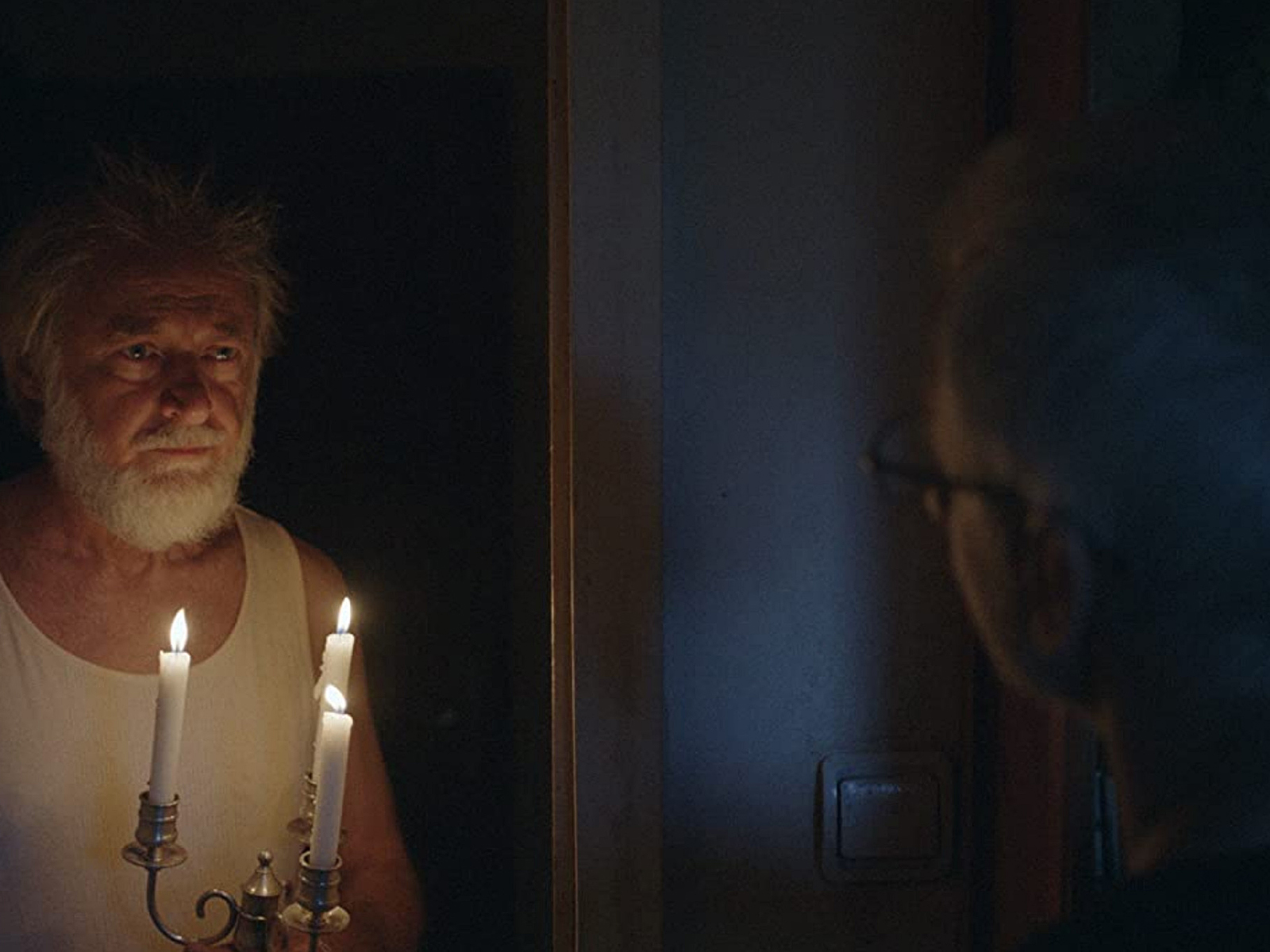
- Golden Globe Awards
The Father (Bulgaria/Greece)
When Valia, whose funeral is the opening scene of The Father, suddenly calls a family member, Vassil (Ivan Savov) is sure: Valia, his wife, is still here. His son Pavel (Ivan Barnev) tries to bring him to his senses, but Vassil sees broken vases and electric light turning on as a sign that his wife tries to speak to him. He decides to go see a well-known psychic in order to communicate with his dead wife. This takes father and son on a rather tragicomic road trip through the landscape of Bulgaria.
“We always strive to make a mix between the sad and the funny, to approach sad situations through the prism of humor and vice versa,” says filmmaker Kristina Grozeva, who made the film with her partner Petar Valchanov. They are two of Bulgaria’s most acclaimed filmmakers behind the features The Lesson (2014) and Glory (2016). “We believe that this way we can hopefully reach some unexpected truth that is concealed beneath the overwhelming emotions of the moment. We believe that as in life, nothing is only sad or funny, you can see the same thing in a different light depending on the place that you’re in. After all, it’s thanks to this ability that we can keep going.”
The Father is a family comedy about how hard it can be to connect with people close to us and to understand what messages people are trying to convey. “The whole story revolves around broken communication,” says Valchanov. “The paradox that in a technological time when we’re more connected than ever, we’ve also grown farther apart than ever. Perhaps it’s this constant background noise of real-time connectedness that wears us down and renders us unable (or unwilling) to actually talk and listen. The film is all about re-establishing communication – quite literally in the father’s quest to open a spiritual channel to his dead wife and metaphorically in the reinvention of a broken relationship between father and son.”
“It‘s an interesting phenomenon here,” continues Valchanov. “Artists, who reaped the benefits of the communist regime by readily conforming with the censorship and the tenets of socialist realism, suddenly became the biggest anti-communists as soon as the regime collapsed, just so that they could maintain their perceived position of authority in the society. After the changes, many of them locked their partisans- and red star-themed works away from people’s eyes, but even though they claim to be the biggest democrats, they keep singing partisan songs at family gatherings. Of course, we’re not blaming them in any way, because that’s their way of coping with the complicated and confusing realities of the “new era”. But it’s a fact that many of them are still actively partaking in our country’s cultural and political life, and are trying to influence the direction of our cultural development. It seems that our society has no memory.”
The film and the tragicomic road trip that father and son take seems to be a commentary on the state of a country that only Bulgarians will truly understand.
“We live in this post-communist reality every waking moment, we’re constantly exposed to its many noxious effects. It’s normal that it informs our stories as they are set in that same reality. The places, the people, the mentality – they’ve all been mutated by the exposure to Communism’s decomposition gases. Our films are all about characters trying to survive these mutations, to find their personal safe haven.”
It is usually the audiences from the former Eastern Bloc countries that spot these nuances, because they are more or less living the same reality, Valchanov points out: “It’s sad, but Bulgaria is an example of a fictitious democracy. We demolished the mausoleum where the mummified body of our communist chieftain Georgi Dimitrov was on venerable display, we tore down a bunch of communist monuments, but at the end of the day, in all those 30 years of democracy it’s been the same people, directly connected to the former communist elite, who continue to run the country.”

